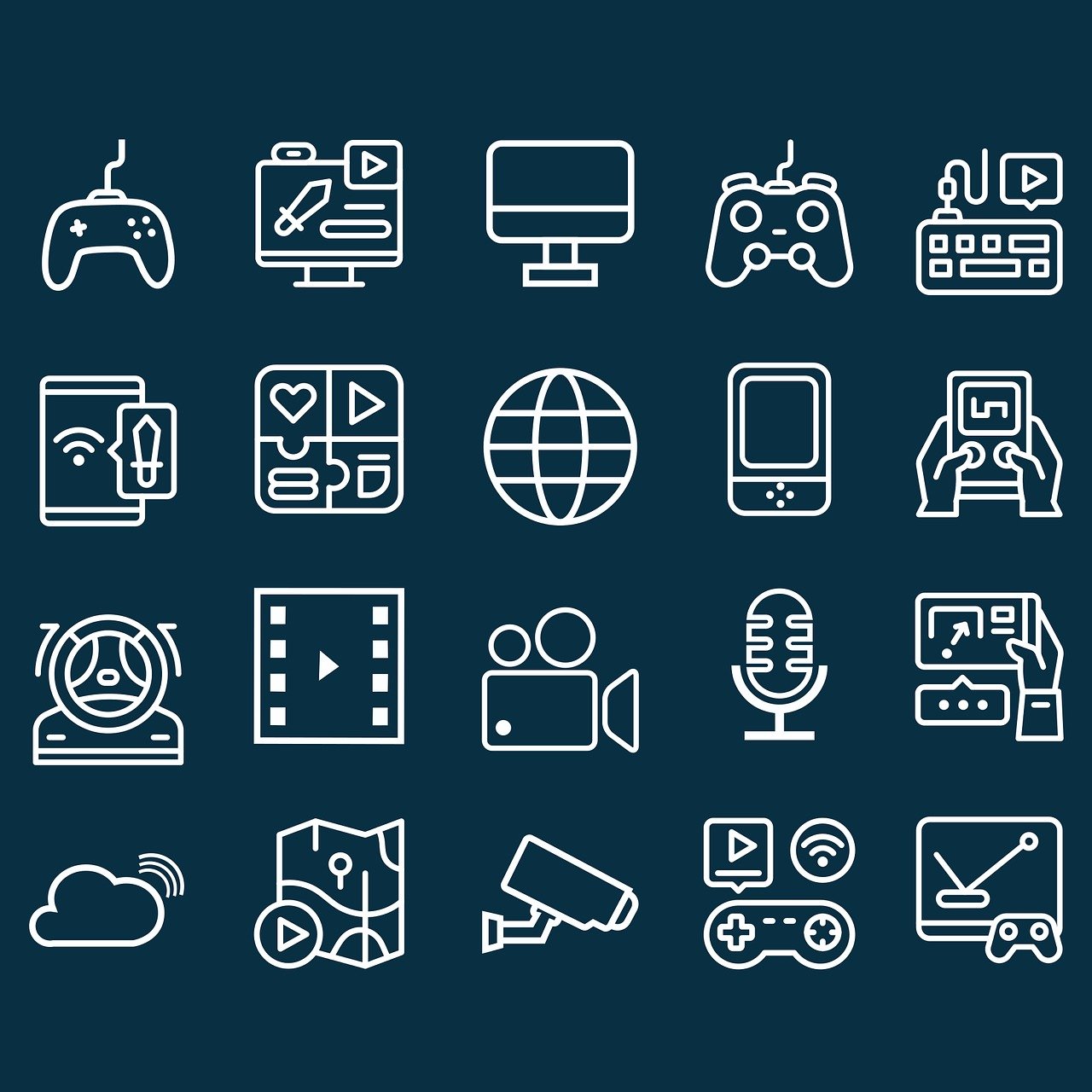Digital Inheritance and Entertainment Media: Can We Pass Down Our Digital Collections When We Die?
By: Garrett Schneider

The Internet became available to the public in April 1993, and has fundamentally changed how we think about media access, consumption, and ownership. Especially in recent years, the shift from physical media to digital has become ever more drastic – since 2018, streaming subscriptions have grown from 55% of home media sales to 88% by 2023.[1] Physical media sales sit at just 3% of total sales.[2] While the convenience of streaming and digital media is unquestionable, its ubiquity presents a question as to how we build our media collections, and who owns them when we no longer can.
Typically, watching a movie, listening to a song, or playing a game requires an account of some kind. If you wanted to watch the newest Netflix show, you would need a Netflix account (though not necessarily your own). However, accounts for different services can function very differently. For example, a Netflix account is just as valuable as any other account of the same tier. Any person with a Netflix account is able to access all of the same movies and shows as anyone else with an account. The only functional difference is the recorded watch history, and subsequently the recommendations provided based on that data.[3] Alternatively, accounts like an Apple ID allow you to purchase digital media and save it to a virtual library. Each new song, movie, or book added to the account distinguishes it further from other Apple IDs. One account login is not the equivalent of any other, as each will have a unique set of media it provides access to.
While the broad shift to streaming has its own implications on media ownership, the question of how we use and interact with these content-unique accounts—particularly in regard to ownership—remains. As it currently stands, most content accounts do not convey real ownership of the media purchased through them.[4] Instead, you are actually purchasing the ability to use that specific content through the account. Your purchase is analogous to purchasing a “key” to access the content, not the content itself. Day to day, this is hardly a relevant distinction; when you want to access your content, you can pull up iTunes and access it. However, this cannot be ignored when transfer of property, particularly in cases of inheritance, comes into play. What happens to your digital movies, books, and songs when you die?
The cultural impact of parental media taste on children is well known anecdotally, and research further supports the idea that the media preferences of our parents influence our own.[5] The value of having CDs, books, and other media passed down generationally cannot be quantified, yet cannot be discounted either. However, media access increasingly being gated behind accounts has put limitations on this practice that may not be fully understood by the average consumer. Apple includes in their iCloud user agreement clauses explicitly limiting resale, conveyance, and right of survivorship regarding your account.[6] While they do provide mechanisms for heirs and those managing estates to access the account of a deceased person, this is primarily for estate management purposes, and does not allow access to entertainment media on the account.[7] With Apple’s current policy, you aren’t permitted to pass on your iTunes library to your children.
With media like books and music, this is a new problem for an old concept. While it could now be harder to pass along your media collection, many people still have a physical collection—sometimes even an inherited one—of books, records, or DVDs. Newer forms of media will feel the effects of this shift much more acutely. Video games are a prime example. Modern video games are an almost entirely digital form of media, and have been for a number of years. The trend continues, with popular consoles no longer including disc drives and instead opting for entirely digital storage to store their game information.[8] Steam, the leading platform for purchasing and launching games on PC,[9] is an entirely digital platform. Like Apple accounts, Steam accounts are nontransferable,[10] even upon the death of the owner.[11] And while Steam account inheritance may not be a pressing issue—the vast majority of Steam users are under the age of 50[12]—few feasible alternatives to Steam for building a collection of PC-based video games exist. With the law as it stands, there will be no generational pass-down of these collections.
How should this problem be addressed? While not a critical issue, questions around digital inheritance are becoming more and more common as those raised in the digital age grow older. In absence of a coherent legal scheme or policy, many have considered creative legal strategies to secure digital inheritance such as creating accounts under a trust, rather than in a person’s name.[13] Legal challenges have been leveled at Apple and Amazon, claiming that the “buy” feature does not actually convey ownership.[14] Game webstores like GOG.com, while still limiting your account to you, allow you to fully download the game such that you do not need to use GOG to actually launch the game (like Steam does).[15] However, these are far from complete solutions to the question of digital inheritance. To maintain the tradition of media inheritance, more attention must be given to this issue.
Link to image source:
https://pixabay.com/vectors/gaming-icon-game-streaming-9178794/
[1] See DEG, https://www.degonline.org/industry-data/ (last visited Jun. 6, 2024).
[2] Id.
[3] See Netflix, https://help.netflix.com/en/node/100639.
[4] iCloud Legal Agreement, Apple, https://www.apple.com/ca/legal/internet-services/icloud/en/terms.html (last visited Jun. 6, 2024).
[5] See Tom F.M. ter Bogt et al., Intergenerational Continuity of Taste: Parental and Adolescent Music Preferences, 90 Social Forces, 297, (2011).
[6] iCloud Legal Agreement, supra note 4.
[7] About Legacy Contacts, Apple, https://support.apple.com/en-us/102631 (last visited Jun. 6, 2024).
[8] Mathew Humphreys, Xbox Series X Ditches the Disc Drive in October 2024, PC Mag (Sep. 19, 2023), https://www.pcmag.com/news/xbox-series-x-ditches-the-disc-drive-in-october-2024.
[9] Steam sets a new record with 10 Million people playing at the same time, Public Gaming Research institute (Jan. 22, 2023), https://publicgaming.com/news-categories/company-news/10708-steam-the-video-game-digital-distribution-service-sets-a-new-record-with-10-million-people-playing-at-the-same-time.
[10] Steam Subscriber Agreement §9, Steam, https://store.steampowered.com/subscriber_agreement/#9 (last accessed Jun. 7, 2024).
[11] Johnny Flores, Jr., Steam Says You Can’t Inherit a Dead Person’s Account, The Gamer (May 28, 2024), https://www.thegamer.com/steam-says-you-cant-inherit-a-dead-persons-account-pc-gaming-ownership-digital-titles/#:~:text=According%20to%20Steam%20Support%2C%20your,away%20or%20have%20a%20will.
[12] Distribution of Steam users in the United States as of March 2024, by age, Statista (May 28, 2024), https://www.statista.com/forecasts/1242344/steam-us-user-share-by-age.
[13] What Happens to Digital Content When We Die?, Streeter Law (Feb. 9 2024), https://www.streeterlaw.com/what-happens-to-digital-content-when-we-die/.
[14] See Andino v. Apple, Inc., No. 2:20-cv-01628-JAM-AC, 2021 U.S. Dist. LEXIS 76011 (E.D. Cal. Apr. 19, 2021); see also Caudel v. Amazon.com, Inc., No. 20-cv-00848-KJM-KJN, 2021 U.S. Dist. LEXIS 199639 (E.D. Cal. Oct. 15, 2021).
[15] GOG User Agreement, GOG, https://support.gog.com/hc/en-us/articles/16034990432541-GOG-User-Agreement-effective-from-17-February-2024?product=gog (last accessed Jun. 8, 2024).
